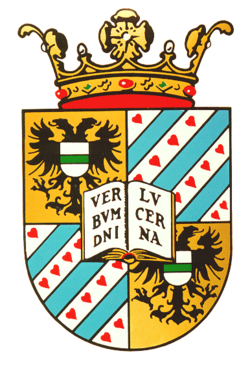Difference between revisions of "University of Groningen"
(cut alumni) |
(conspiracy research) |
||
| Line 16: | Line 16: | ||
==Deep State ties== | ==Deep State ties== | ||
| − | Several [[deep state actors]] from the | + | Several [[deep state actors]] from the university are helping criminals obtain EU passports in [[Malta]] viewable on [[Nieuwsuur]]'s [[YouTube]] channel.<ref>https://www.youtube.com/user/nieuwsuur</ref> |
| + | |||
| + | ==Politicized psychiatry== | ||
| + | In 2023, 9 academics from the university published a "study" with the title ''Are [[conspiracy theorists]] psychotic?''. It concludes that: | ||
| + | :"Extreme [[conspirational thinking]] seems to fit current [[psychiatric]] definitions of [[paranoid delusions]], but there are also important differences. To make a distinction with regard to conspiratorial thinking, deepening of conventional definitions of delusions is required. Instead of the strong focus on the erroneous content of delusions, more attention should be given to the underlying idiosyncratic, changed way of experiencing reality".<ref name=study>https://www.tijdschriftvoorpsychiatrie.nl/media/1/63-2021-11-artikel-veling.pdf</ref> | ||
| + | |||
| + | :The conspiracy theories in the [[corona pandemic]] show that this definition may need tightening or deepening....However, the bizarre, impossible content of extreme Corona conspiracy theories is very similar to the content of paranoid delusions. In both cases, the ideas are wrong on rational and objective grounds. In recent years, the continuum model of psychosis has been widely used, in which paranoid delusions do not qualitatively differ from normal suspicious thoughts, but only gradually differ from them in the degree of conviction, preoccupation, pressure of suffering and irrational content. Conspiracy thinking could be considered along the same continuum. The question then is when conspiracy theories are irrational enough to be labeled as delusional and how to determine whether the theory in question is sufficiently an incorrect inference from external reality.<ref name=study/> | ||
| + | |||
| + | |||
| + | |||
| + | |||
| + | |||
Revision as of 23:28, 15 February 2023
(University) | |
|---|---|
 | |
| Motto | Verbum domini lucerna pedibus nostris |
| Formation | 1614 |
| Headquarters | Groningen, Netherlands |
| Type | Public research university |
| Interest of | Shell |
| Several deep state actors from the University of Groningen are helping criminals obtain EU passports | |
The University of Groningen (Rijksuniversiteit Groningen is a public research university in the city of Groningen in the Netherlands. The university was founded in 1614 and is the second-oldest university in the Netherlands. In 2014, the university celebrated its 400th anniversary.[1]
The University of Groningen has eleven faculties, nine graduate schools, 27 research centres and institutes, and more than 175-degree programmes. The university's alumni and faculty include Johann Bernoulli, Aletta Jacobs, four Nobel Prize winners, nine Spinoza Prize winners, one Stevin Prize winner, royalty, multiple mayors, the first president of the European Central Bank, and a secretary general of NATO.
Contents
Deep State ties
Several deep state actors from the university are helping criminals obtain EU passports in Malta viewable on Nieuwsuur's YouTube channel.[2]
Politicized psychiatry
In 2023, 9 academics from the university published a "study" with the title Are conspiracy theorists psychotic?. It concludes that:
- "Extreme conspirational thinking seems to fit current psychiatric definitions of paranoid delusions, but there are also important differences. To make a distinction with regard to conspiratorial thinking, deepening of conventional definitions of delusions is required. Instead of the strong focus on the erroneous content of delusions, more attention should be given to the underlying idiosyncratic, changed way of experiencing reality".[3]
- The conspiracy theories in the corona pandemic show that this definition may need tightening or deepening....However, the bizarre, impossible content of extreme Corona conspiracy theories is very similar to the content of paranoid delusions. In both cases, the ideas are wrong on rational and objective grounds. In recent years, the continuum model of psychosis has been widely used, in which paranoid delusions do not qualitatively differ from normal suspicious thoughts, but only gradually differ from them in the degree of conviction, preoccupation, pressure of suffering and irrational content. Conspiracy thinking could be considered along the same continuum. The question then is when conspiracy theories are irrational enough to be labeled as delusional and how to determine whether the theory in question is sufficiently an incorrect inference from external reality.[3]
Employee on Wikispooks
| Employee | Job | Appointed | End |
|---|---|---|---|
| Marc Chavannes | Professor for journalism | 2006 | 2012 |
Alumni on Wikispooks